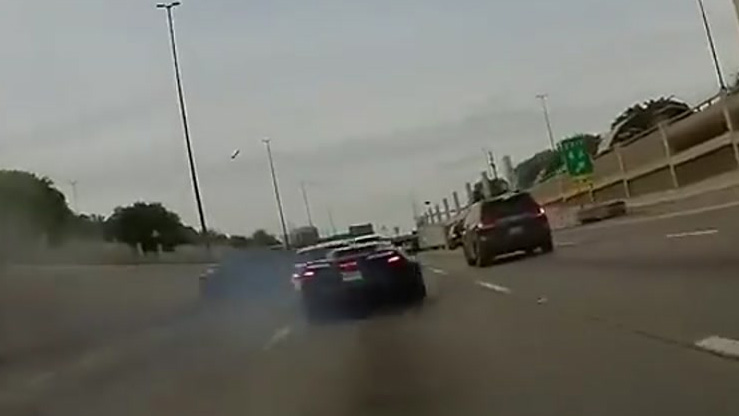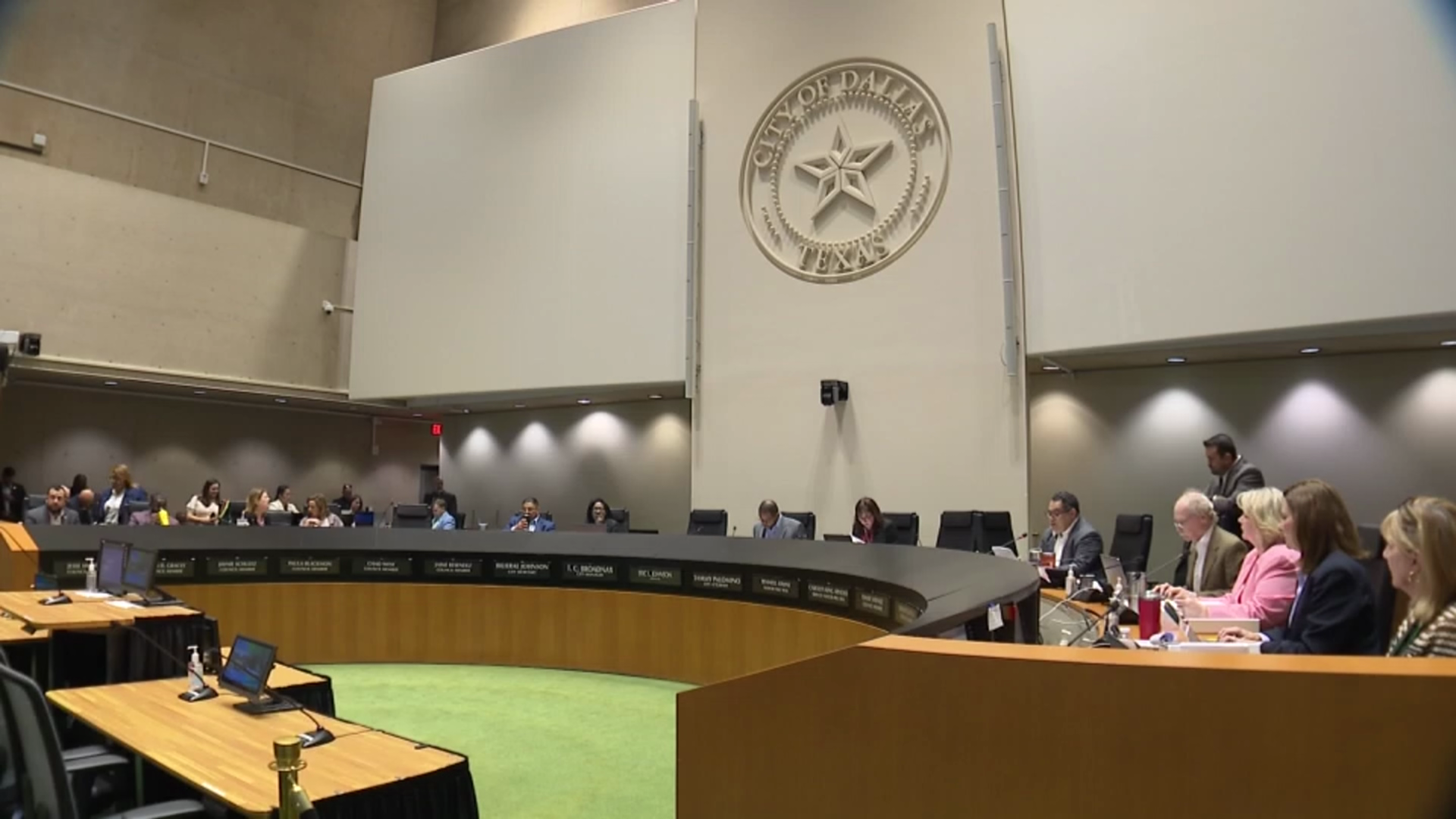Tyson Foods says it is working to add more vans to the transit fleet that takes dozens of workers from Dallas to its processing plant in Sherman, a move meant to help guard against the spread of infection at the plant where hundreds have already tested positive for COVID-19.
Additional preventative measures are being taken after an NBC 5 Investigates report that found many of those employees – most of them Burmese refugees who now live in North Texas – have crowded into rideshare vans, making it difficult for social distancing during their daily commute.
The additional vans would allow the workers to separate into smaller groups as they travel to and from work in vehicles provided via the Denton County Transportation Authority vanpool program.
Tyson said it has already taken steps to reduce the number of employees riding in larger groups.
But questions remain on whether the company is moving fast enough at a critical time.
This week, NBC 5 Investigates watched as two vans each carried about a dozen workers to the Sherman plant.
NBC 5 Investigates
Uncover. Reveal. Expose.
In one case a group of 14 workers climbed out of a single van – a practice that even the CDC says is a bad idea.
Most of the passengers in the vans are refugees from the small Asian country of Myanmar, formerly Burma, who now live in Dallas, Denton and surrounding cities.
For some, the ride is an hour long, each way.
In such cases, “having fewer people in a vehicle is the best option,” said Diana Cervantes, an epidemiologist at the UNT Health Science Center.
Even if masks are worn, there is a risk of spreading the virus with so much time spent in a van full of people, Cervantes said.
The CDC recently issued guidelines for the meatpacking industry, telling companies to “encourage workers to avoid carpooling to and from work.”
If group rides are a necessity, the CDC said, “limit the number of people per vehicle as much as possible. This may mean using more vehicles.”
Cervantes, in an interview with NBC 5 Investigates, agreed.
“How can we get more vehicles out there? How can we work with other companies or other commute organizations to be able to do that, because the safety of their employees isn’t just important for the company, it’s important for a whole community,” she said.
NBC 5 Investigates first questioned the crowded vans after a leader in the local Burmese community, Salai Lian, expressed his concerns.
“I mean, it doesn’t make sense,” Lian said.
He said the Burmese refugees worry about becoming infected in the vans, but have few options – they need the work and don’t have cars or driver’s licenses after coming to the U.S. to escape religious persecution in their native country.
“But the problem is… how many passengers in that van?” Lian said. “Because you know… everybody needs to have distance.”
Since NBC 5 Investigates first questioned Tyson, the company says it has reduced the number of employees traveling in groups in the vans.
“We are continuing to work on providing more transportation options once additional, qualified drivers are identified," a spokesperson said.
Tyson said it is also providing face masks, thermometers and electrostatic disinfection treatment for each van.
The ride share vehicles were first provided by Dallas Area Rapid Transit, but DART logos were recently removed when vanpool vehicles assigned to Tyson workers were taken over by the Denton County Transportation Authority.
DCTA said it is also working to provide cleaning recommendations through a contractor that operates its vanpool program.
The drivers are also Tyson workers and take the vans home at the end of their shifts, ready to pick up their coworkers the next day. They pool their money to pay for gas and to lease the vans.
When COVID-19 hit, Tyson moved quickly to implement strict procedures inside its plants, including separating workers to help prevent the spread of the virus.
But outside, where some employees still have little separation in the vans they need to get to work, questions remain on whether Tyson or transit authorities could move faster to limit the number of people exposed to each other.
Cervantes said the meat plant workers deserve the best protection, “because these employees, and the work they do, is critical to our everyday lives and our communities.”
Tyson said any worker in the rideshare program who tests positive for COVID-19 is provided 14 paid days in quarantine. Such measures are also provided for those who shared a van with an infected employee, the company said.
Meanwhile, Lian, who is helping the refugees battle the ravages of COVID-19, believes getting more vans for the workers is the best solution before infection sets in.



